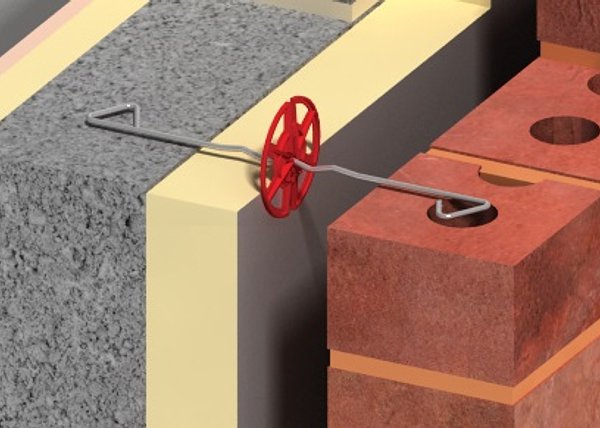TeploTie Used in British Passivhaus

Ancon TeploTie, the low thermal conductivity wall tie manufactured from basalt fibres, has been used in the first certified Passivhaus to be built using masonry cavity walls.
Passivhaus is a globally recognised Standard for the construction of low energy buildings which provide excellent levels of comfort in both winter and summer. The first Passivhaus was built in Germany in 1991, however not until 2010 in Denby Dale in West Yorkshire has this Standard been adapted to British building methods.
This pioneering work was undertaken by Green Building Company and project leader, Bill Butcher, said of the achievement,
The Denby Dale Passivhaus proves that it is possible to build an ultra low energy house using standard British building materials and techniques, at a low cost.
Achieving the energy efficiency levels of Passivhaus relies on the construction of a well-insulated airtight building envelope. Thermal bridges must be removed wherever possible to limit heat loss. When building with cavity walls, this makes Wall Tie selection particularly important.
Bill Butcher said,
Our choice of Wall Tie has been carefully modelled in Passivhaus Planning Package (PHPP) - the design tool for architects designing to the Passivhaus standard. The use of basalt wall ties gives a nil reading for heat transference.
TeploTie wall ties are exclusive to Ancon. They have a thermal conductivity of just 0.7W/mK, making them the most thermally efficient Wall Tie on the market. They are available in various lengths to suit even the most super-insulated cavity, essentially future-proofing traditional masonry construction methods with which all clients, contractors and designers are familiar.

The masonry walls at Denby Dale comprise an inner leaf of dense concrete block, a 300mm cavity filled with fibreglass insulation batts and a natural stone external leaf.
Bill Butcher said of the build method,
We chose cavity wall construction because most British builders are familiar with the technique and materials can be sourced easily. It also met Yorkshire planning requirements for a stone exterior.
In addition, masonry construction offers a ‘cave effect’ which acts as a thermal mass helping to keep temperatures stable.
The Denby Dale Passivhaus is a 118sqm three bedroom detached house which cost just £141,000 to build. It will require minimal heating with costs of around £75 per year.
The energy required for space heating in Passivhaus does not exceed 15 kWh/m2/yr. This is 90% less than the UK average. Tests at Denby Dale revealed an airtightness of 0.33 air changes per hour at 50 Pa, which is about 25 times better than Building Regulations requirements.
Passivhaus should not be confused with the term ‘passive house’ which relates to a project with passive design features (such as being orientated for maximum solar gain) but where official certification has not been sought.

Related Products

Wall Ties & Restraint Fixings
Wall ties and restraint fixings are an essential element in the stability of masonry panels.
Latest News
New EPDs for Key Product Ranges
Environmental Product Declarations (EPDs) covering two key masonry support and restraint solutions from our trusted Ancon product range are now available. Architects, engineers and contractors can now access these verified documents which provide clear, comparable data on the full lifecycle impact of our products.
New Ancon Staifix Packaging: Built for strength, designed for clarity
Leviat’s brand refresh of its established Ancon Staifix range introduces bold, fresh, and sustainable new packaging – designed for visibility, strength, and reliability.
